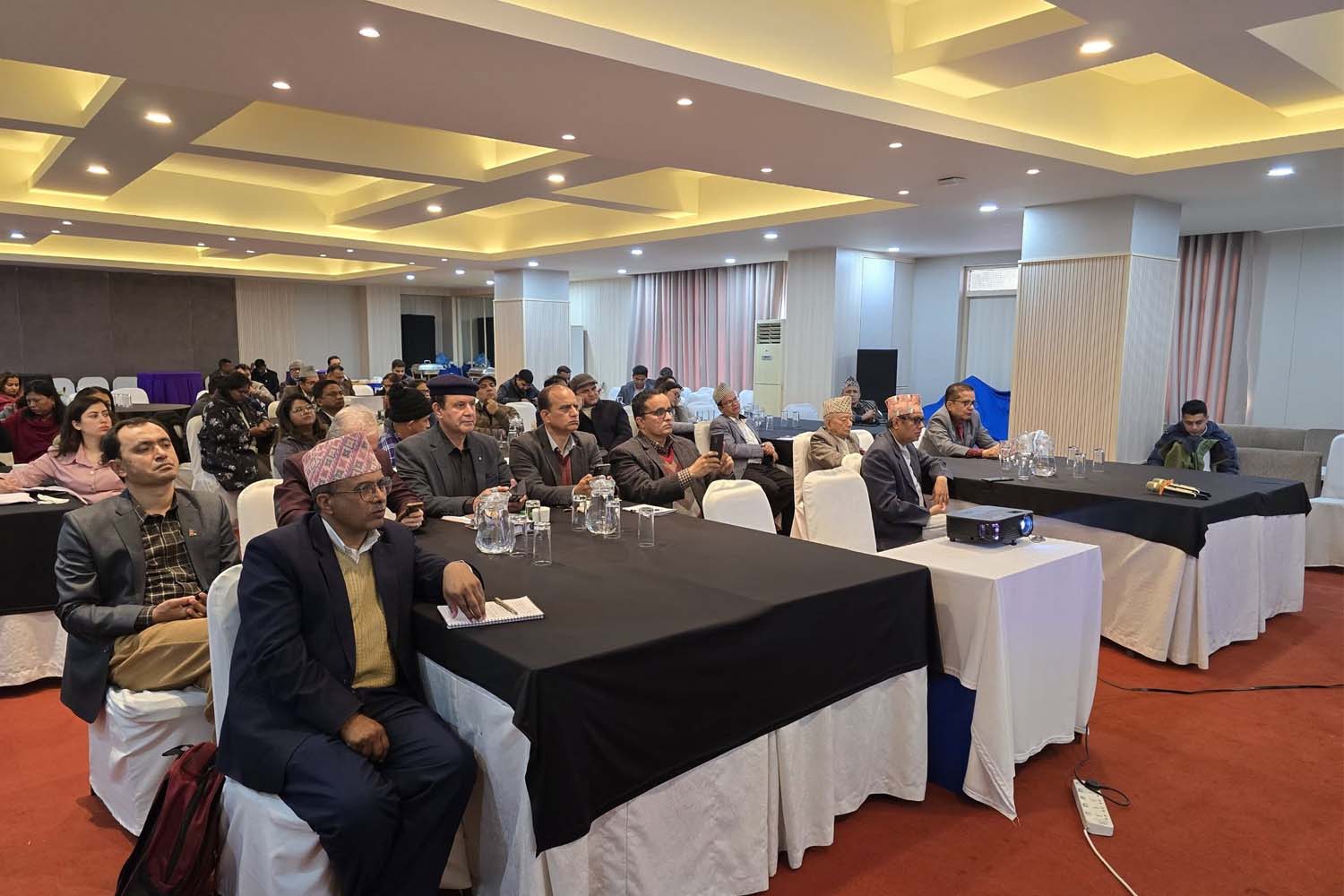National
Human rights body to recommend revisions to Social Media Bill
Social media needs regulation, not control, NHRC chair Magar says, at an interaction held to discuss proposed legal provisions.
Post Report
Taking a serious exception to some provisions of the Social Media Bill, the National Human Rights Commission (NHRC) is preparing to submit recommendations to the federal parliament, arguing that social media should be regulated, not controlled.
The constitutional human rights watchdog has concluded that the bill registered in the National Assembly could restrict citizens’ freedom of expression.
In a meeting held to discuss the bill, the commission on Thursday publicly expressed concerns over parts of its provisions and content. It is preparing to submit recommendations to the federal parliament with categorical suggestions for revision.
Speaking at the interaction, the commission’s chairperson Tap Bahadur Magar emphasised that social media should be regulated, not controlled. “We are collecting suggestions from all sides and will move forward on how to improve the bill,” he said.
Shyam Babu Kafle, head of the NHRC’s legal division, presented an analysis of the bill’s provisions. He raised concerns that many provisions of the bill failed to distinguish between civil and criminal liabilities, contradicted principles of criminal justice, and allowed government officials to impose penalties and fines.
The commission was dissatisfied with the government’s move to introduce the bill in Parliament without consultation with the commission though it is a matter directly related to human rights.
If the bill gets endorsed, social media platforms will have to post up to Rs10 million in fines if they don’t comply with the government conditions while a user disseminating misleading information can be subject to up to five years of imprisonment and fines up to Rs1.5 million.
As per the bill, companies, firms or organisations seeking to operate social media platforms need to get government approval. Different types of applications (apps), websites, and blogs, among others, created in cyberspace that allow interaction through electronic means have been defined as social media platforms.
The bill has listed out offenses that can make users liable to paying hefty fines and imprisonment.
Those who transmit false or misleading information through fake identity are liable to the most severe penalty, which can lead to five years of imprisonment and a fine up to Rs1.5 million.
“No one shall open a false, permanent or temporary group, or page on any social media platform individually or in group and transmit false or misleading information that undermines Nepal’s sovereignty, geographical integrity or adversely affect national interest,” states one section of the bill.

Any individual who posts or shares content on social media that “disturbs the sovereignty, territorial integrity, national unity and security of Nepal” will be imprisoned for up to five years or fined up to Rs500,000, or both, the bill further states.
The bill, which has been registered in the National Assembly, will be introduced for preliminary discussions. Once the upper house accepts the bill, lawmakers will be allowed to register amendments. The upper chamber, after endorsement, will forward it to the lower house where it goes to deliberations before the approval. It is then returned to the National Assembly for review before it is dispatched to the President’s Office for authentication.
If it gets endorsed without revision, those who create fake pages and groups and from them, post or share content on social media, share content of others, comment or call will be imprisoned for three months or fined up to Rs50,000 or both.
Using social media to harass, torment, threaten, embarrass, insult, dehumanise or spread rumours and imitate someone’s voice will make the offender liable to two years in prison or a fine of up to Rs300,000. The bill says anyone who ‘hacks’ someone’s social media account will be imprisoned for up to three years and fined up to Rs1.5 million.
The bill also proposes that those who make ‘deepfake’ videos using artificial intelligence and spread them on social media can be jailed for up to 2 years or fined up to Rs300,000. There are also provisions in the bill for those who spread obscene, false or misleading content to be imprisoned for up to 2 years or fined up to Rs300,000.
Human rights activist Gopal Krishna Siwakoti criticised the bill, stating that it cannot move forward without revisions.
“There can be no compromise on the constitutional guarantee of freedom of expression and an open society,” he said.




 10.12°C Kathmandu
10.12°C Kathmandu












